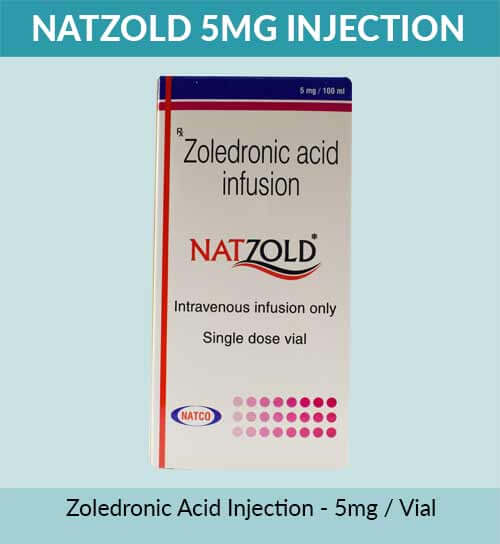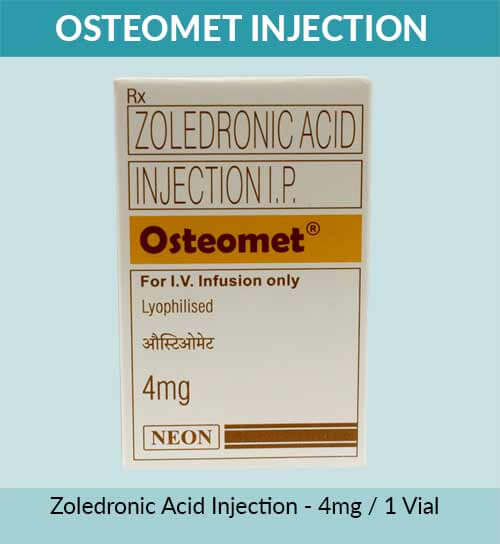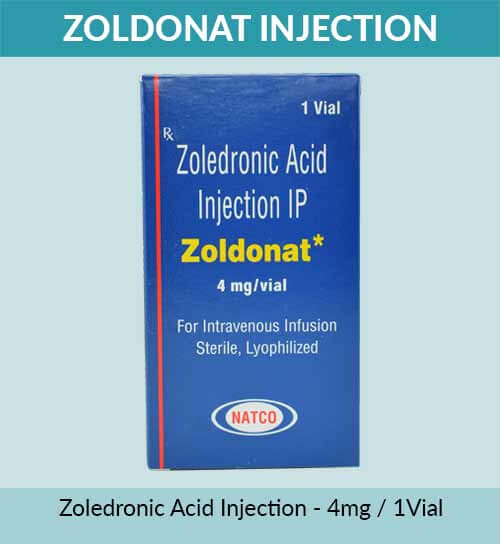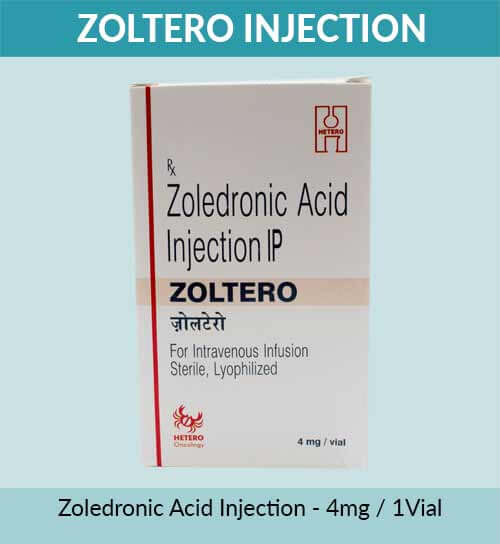Zoledronic-acid
Zoledronic acid is a medication used in the treatment and prevention of bone disorders, such as osteoporosis and certain types of cancer-related bone problems. It belongs to a class of drugs known as bisphosphonates.
Zoledronic acid works by inhibiting the activity of osteoclasts, which are cells involved in the breakdown of bone tissue. By reducing bone resorption, it helps to increase bone density and strength, and may also help to relieve bone pain associated with certain cancers.
The medication is typically administered intravenously and the frequency of treatment depends on the condition being treated. In the management of osteoporosis, zoledronic acid may be given once a year, while in the treatment of cancer-related bone problems, it may be given more frequently.
Common side effects of zoledronic acid may include flu-like symptoms, such as fever, fatigue, and muscle aches. It may also cause gastrointestinal symptoms, such as nausea, vomiting, or abdominal pain. In rare cases, it can lead to more serious side effects, such as osteonecrosis of the jaw or renal impairment. Regular monitoring of kidney function is usually recommended during zoledronic acid treatment.
Zoledronic acid should be used under the supervision and prescription of a qualified healthcare professional. It is important to follow the recommended dosage and schedule to achieve optimal results and minimize the risk of side effects.
In summary, zoledronic acid is a medication used in the treatment and prevention of bone disorders, including osteoporosis and certain cancer-related bone problems. By inhibiting bone resorption, it helps to increase bone density and strength. Regular monitoring and adherence to healthcare provider instructions are important for safe and effective use of zoledronic acid.






